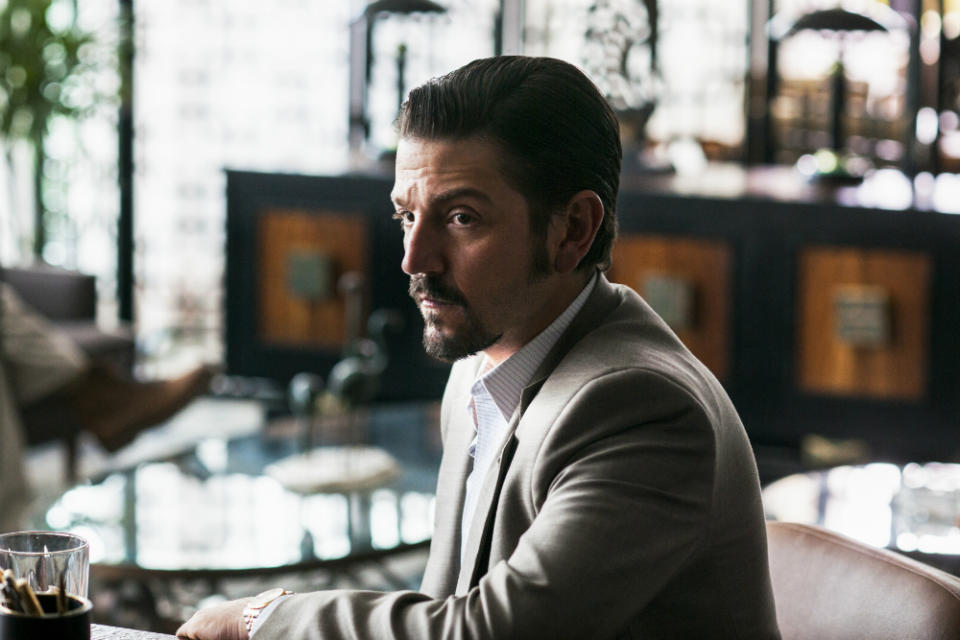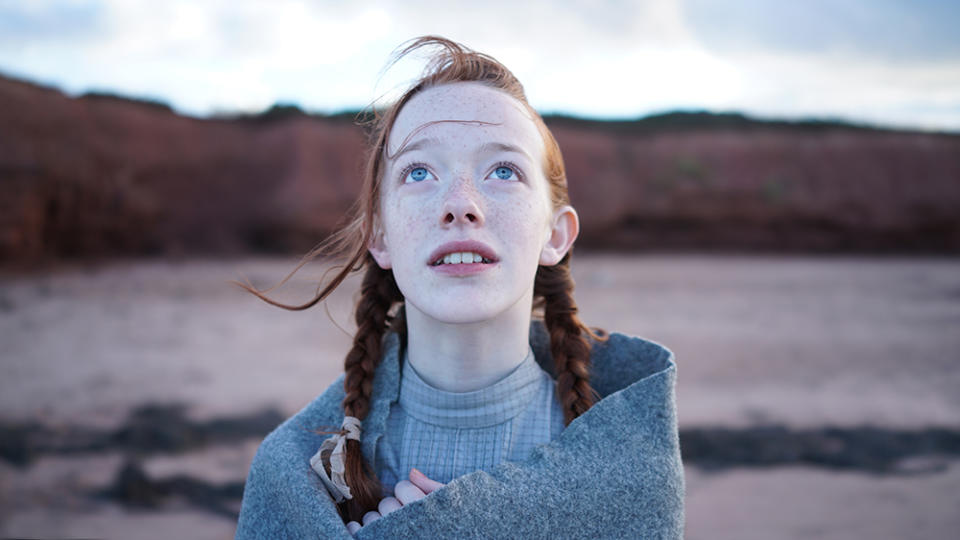Los Cabos Debates Digital Series Revolution, Freedoms, Rights, Talent, Paradigms

LOS CABOS, Mexico — The 7th Los Cabos Festival, the most industrially-minded of Mexico’s film events, was the first to take place in full-blown digital OTT revolution.
Two TV panels, the biggest ever at Los Cabos, packed out by some of the foremost Latino TV and OT show-runners, producers and directors, debated the huge, multi-faceted and still fast-evolving impact the digital platforms are having, and will have, on the industry. The result was maybe the most intense industry debate Los Cabos has ever seen. Eight takeaways:
1.LATIN AMERICA GETS WHAT IT NEEDS
The panels underscored the huge paradigm shift in just a few years. For decades, Latin American TV production was dominated by free-to-air networks, producing in-house, producer Alex Garcia reminded a Los Cabos industry audience. Independent production companies – Mexico’s Argos, Argentina’s Pol-ka and Underground – were huge exceptions, their fortunes tied to producing for specific broadcasters. Then came the pay TV revolution. HBO Latin America produced Latin America’s first limited premium series, “Epitafios,” with Pol-ka, in 2003. With Netflix, and now Amazon Prime Video and YouTube Premium, the drama series floodgates are open. On Sept. 20, Netflix announced its 11th original to date in Brazil, supernatural thriller “Spectros.” Production companies, often moving across from the film sector, have seen a massive injection of revenues, which are, moreover, recurrent, incremental and paid during production. Gullane, for two decades one of Brazil’s foremost film companies, now makes as much TV as film. For many producers TV and OTT is financing their film business.
2.THE CREATOR/PRODUCER DIVIDE
But are creatives, and creative producers, happy with this situation? Leading showrunners from Latin America and the U.S. spoke on Los Cabos two TV panels: Tonya Lewis Lee, producer of Spike Lee’s Netflix hit “She’s Gotta Have It”; Andrés Baiz, an executive producer, director and one of the main drivers of Netflix’s “Narcos”; José Manuel Cravioto, a director on Netflix’s “El Chapo” and showrunner of its upcoming “Diablero”; Humberto Hinojosa, director of social phenom “Luis Miguel – La Series.” In a crucial metric, creative freedom, the common answer was a resounding yes. “For us, Netflix has been a welcome change in that they have allowed us to do what we wanted to do,” said Lewis Lee. “‘Narcos’ is a filmmaker-friendly show,” echoed Baiz. Its directors not only come from film but are often renowned cutting edge auteurs, he added, citing Mexico’s Cannes and Venice Festival winner Amat Escalante (“Heli,” “The Untamed”), Berlin double laureate Alonso Ruizpalacios (“Gueros,” “Museo”). They have a chance to do a directors’ cut once the episodes are done, Baiz added. Lewis Lee and Baiz maybe in a privileged position. With a filmmaker of Spike Lee’s status, it would only seem natural for Netflix to allow him to make the series he wanted to make, Lewis Lee observed. “Narcos” has proved a milestone smash hit for Netflix, bringing in semi foreign-language narrative dramas as mass phenomenon entertainment.

3.FINALLY, A PAYDAY FOR MOVIE DIRECTORS
TV drama series offer filmmakers the chance to explore characters over more involved and complex character arcs. The Nora Darling of “She’s Gotta Have It,” a story still ahead of its time 30 years after the original movie, is more multi-faceted than the film, critics have pointed out. For creators, especially in the impoverished U.S. indie sector which cannot look to government incentives to finance movies – unlike Latin America and Europe – the OTT explosion has meant that they finally get a handsome paycheck. “I got paid like an intern on my features. This is how I pay my rent,” Desiree Akhavan argued about TV series directing. Many other directors would, if candid, agree.
4.BUT YOU CAN’T ALWAYS GET WHAT YOU WANT: RETAINING RIGHTS
Some of the producers on the panels, in telling contrast, homed in on two huge concerns at the heart of new TV landscape business models: Rights and talent.
“The main question is always who owns the property,” said Carla González Vargas, showrunner of the biggest Spanish-language hit series of this year from Latin America, “Luis Miguel – la Serie.”
On “Luis Miguel,” rights on Season 1 are owned by Gato Grande, and licensed to Netflix. Spike Lee retained Intellectual Property on “She’s Gotta Have It,” said Lewis Lee. On Canada’s “Anne with an E,” producer Miranda de Pencier sold SVOD rights to Netflix and retained other rights. “For me as an independent producer making an indie project, it’s a Netflix original and we get global access, but I still own the show,” a great combination, she commented.

“In the future the IP is the only thing you will still have,” observed José Manuel Cravioto, a director on Netflix’s “El Chapo” and showrunner of its upcoming “Diablero.” But to do so, you may need a star director or deep pockets. “It’s been a good situation for us,” Lewis Lee noted. But “I’m talking about Spike Lee, I don’t know if it’s different for other people without that history,” she observed. “When you own [a show], the income arrives three-to-five years after it airs. You have to have the financial ability to wait. As long as you have that, a big studio or private pockets to back you, it’s one way to look at things,” said Gonzalez Vargas. But, as Netflix and other platforms drive ever more into original production, not acquisition, it’s logical for them to seek more rights. At least in Europe, national regulators, the E.U. and Netflix are engaged in resolving if and how the U.S. streaming giant could be required to invest part of its revenues in local production. When that concern is resolved, the rights issue could be the Next Big Thing on the regulatory agenda, at least in a county where there is a tradition of the independent sector partially retaining rights to TV shows it produces.
5.ANOTHER CRUNCH: RETAINING TALENT
The initial focus of the two Los Cabos panels was how, when working with OTT platforms, the independent TV sector could maintain creators’ strong voice. But debate soon acquired a far larger focus.
“I’m not against the platforms. I work with all of the platforms and main networks. I’m just worried where things may be going,” said Garcia who, like many producers, is worried that Netflix will increasingly produce talent directly, cutting out the producer middle-man.
“I come from Latin America. We used to have Televisa and Caracol, Globo, huge companies dictating the rules of what we should do.” The question, Garcia asked the audience, is whether with the new platforms, the situations will be “the same, just bigger.”
He sketched out a sobering scenario, of just how much Netflix can save by producing directly with creators: “Netflix spends $6 billion on content a year. Indie production companies end up charging around 10% as a production fee. That’s $600 million a year. Specifically in Latin America, how much would it cost Netflix to put on their contract every single talent there is? $100 million? $150 million?”
Garcia’s rhetorical bigger picture question sent a frisson through the Los Cabos audience. Whether this scenario will ever play out in full, however, is another question.
6.LOOK ABROAD, CIRCLE BACK HOME
As Cannes Mipcom TV market underscored last month, everybody’s trying to catch up with Netflix. That includes overseas broadcast networks, which are driving into drama series. Desiree Akhavan originally tried to get her series, comedy “The Bisexual,” financed out of the U.S. “It was rejected everywhere. My partner brought me to London and I pitched the same script and had options in the U.K. It was much easier then.” Once sold to Channel 4, Hulu came on board as a co-producer, taking the U.S. American indie filmmakers now have a sharply uphill battle to sell their films abroad. In TV, U.S. writer-directors, especially because of their writing and story structure skills, are in high demand in Europe.
7.NO ONE SIZE FITS ALL
Just how the rights issue will play out, nobody knows. Digital platform production is still in its infancy. Apart from the one-off “Lilyhammer,” Netflix released its first fully foreign-language series, “Club of Crows,” as recently as August 2015. “The sector is simply evolving so fast,” said Gonzalez Vargas. Who would have thought, after its Cannes Festival standoff, that, four months later, Netflix would be cutting a cheque to France’s CNC public film agency, equivalent to 2% of its revenues in France? (Answer: Anybody attending the Trans-Atlantic Dialogues at Series Mania in April, where Reed Hastings waved a very large olive branch at French regulators).
One thing seems certain, however: Digital platform operators are hardly cut from the same cloth. “I’ve made one series for Claro, another for Netflix, and now another for Amazon, and they have totally different approaches,” said Humberto Hinojosa, director of Claro’s “Brotherhood” and Netflix’s “Luis Miguel – La Serie.” “Brotherhood” didn’t have a showrunner, but rather Manolo Cardona, as producer and lead actor. Netflix didn’t give notes on “Luis Miguel,” and Hinojosa shot it “like one of my movies, but more rushed.” The Amazon series has an American showrunner who is “highly methodic”: “If I go scouting and I want to change the set to a subway they say: ‘No, no, no. we have to put that in the script, down to the color of the train cars.” “Each platform is different and each project is different,” he concluded.
8.BIGGER PICTURES
Intense and wide-ranging, Los Cabos TV panel debate underscored just how many pivots there are in the OTT revolution. They take in sea-changes in consumer opportunities. “There is a diversity in content, thank God. We are finally there and can have people from different countries looking at series in different languages and at different sexualities,” said De Pencier.
She went on: “If you’re a kid in small town Texas, Israel or Italy, your perspective was very narrow. Now that same kid is watching shows from everywhere. That is a plus. Knowledge is power.”
But there’s a downside. “We keep talking about streaming services that you have to pay for. You didn’t have to pay for network TV. What about the people who can’t afford to pay for the content? What happens there?,” asked Lewis Lee.
She said she didn’t know the answer – typical of a debate which was large on insights and also candor.
Jamie Lang contributed to this article.
Related stories
Cinepolis Nabs Worldwide on Horror Pic 'My Favorite Birthday' (EXCLUSIVE)
Adam Driver: Auditions 'Set up for the Actor to Fail'
Netflix Acquires Toronto Title 'Mademoiselle de Joncquières' (EXCLUSIVE)
Subscribe to Variety Newsletters and Email Alerts!

